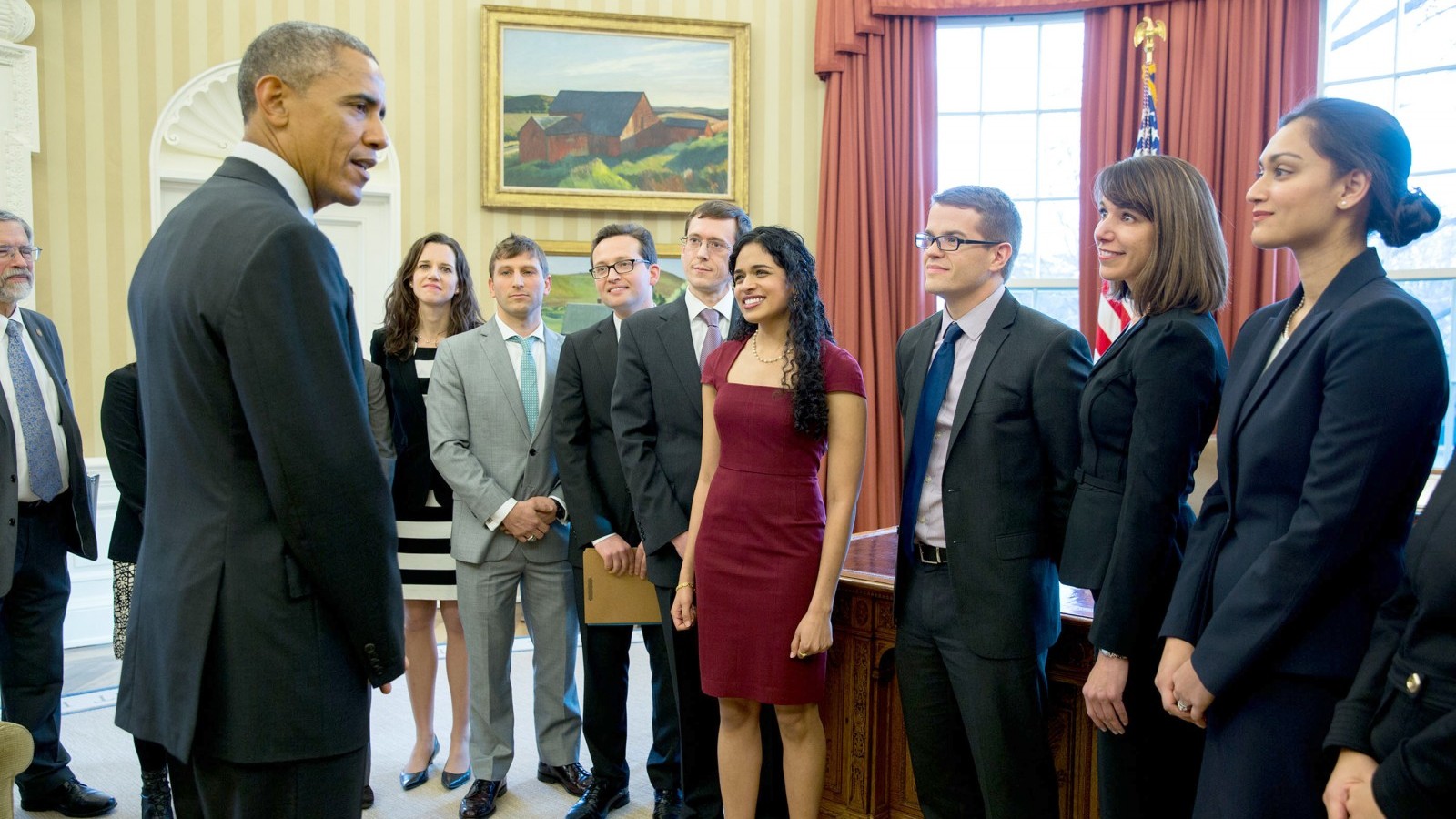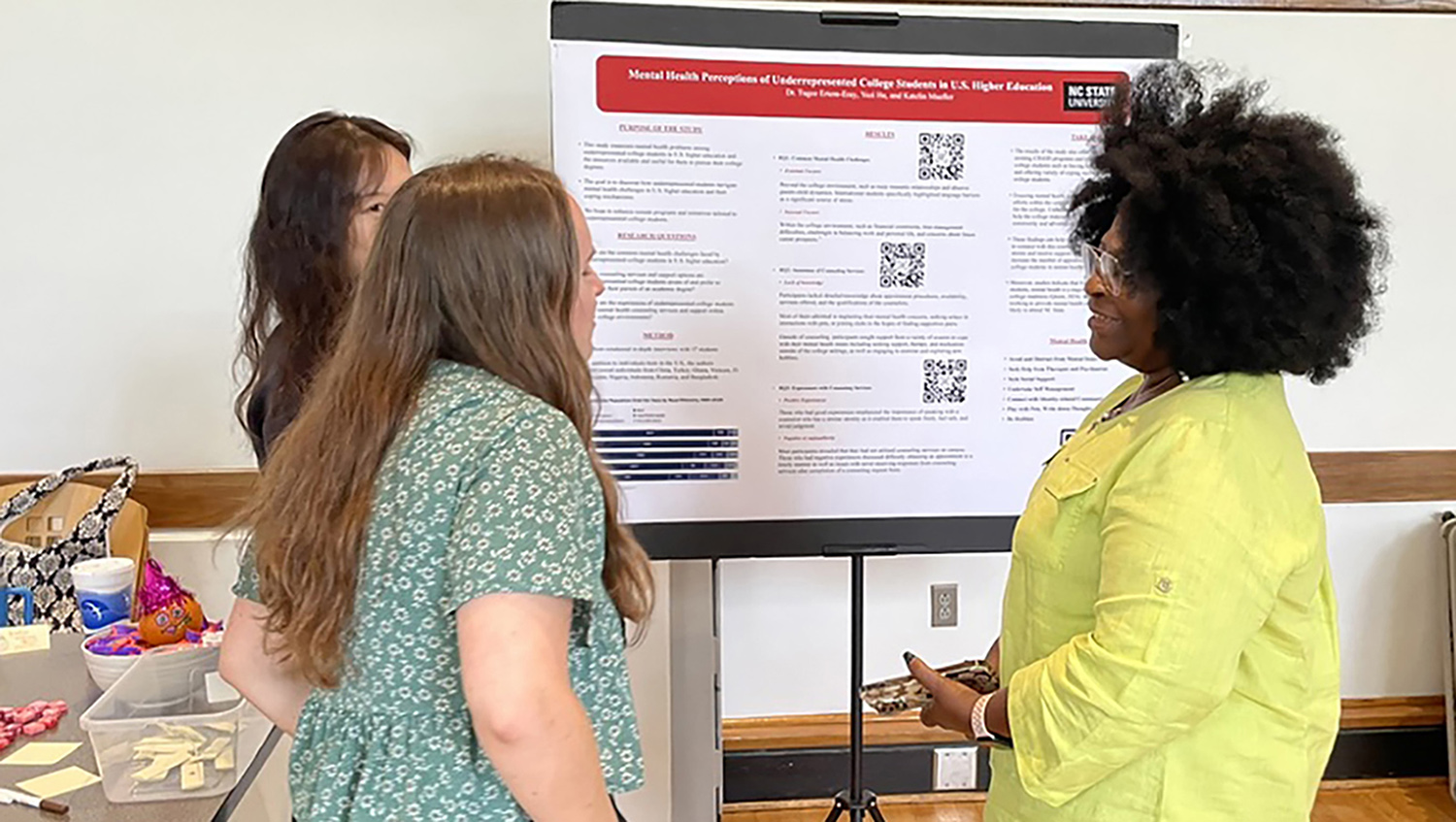Psychology Professor Serves on White House Team

Editor’s Note: Earlier versions of this article appeared in our print magazine, Accolades, and online.
“Summer melt” has nothing to do with the weather. It’s a term used to describe a national phenomenon that occurs every year: 20 to 30 percent of urban high school graduates who have been accepted into college fail to show up for their freshman year.
A team of social scientists with expertise in how people think and act examined the trend. Their recommended fix? Send a series of simple texts, each of which reminds the teens to complete a specific task related to their college enrollment. The team’s advice yielded a 9 percent increase in enrollment in just one year.
NC State psychology professor Lori Foster is a member of that team, appointed by the White House to help federal agencies increase the efficiency and efficacy of their programs and policies.
In its work with federal agencies over the last several years, the White House’s Social and Behavioral Sciences Team (SBST) has been thinking creatively about how to translate social and behavioral science insights into concrete interventions that are likely to help agencies reach their institutional goals. They’ve also been designing rigorous field trials to test the impact of these recommendations.
A growing body of evidence demonstrates that behavioral science insights — research findings from fields such as behavioral economics and psychology about how people make decisions and act on them — can be used to design government policies to better serve the American people.
— President Barack Obama
Their early successes led President Barack Obama to sign an executive order in September 2015 directing federal agencies to use behavioral science insights to better serve the American people.
“A growing body of evidence demonstrates that behavioral science insights — research findings from fields such as behavioral economics and psychology about how people make decisions and act on them — can be used to design government policies to better serve the American people,” President Obama said.
Foster was proudly standing by with her team members when the executive order was signed. The SBST tapped her to serve because of her expertise in industrial and organizational psychology.

Simply put, Foster studies how organizations and their employees function. She’s worked with large organizations for more than 15 years, from the U.S. military and the United Nations to power utilities and international nongovernmental organizations.
The White House released a report summarizing the SBST’s first year of projects designed to make government programs more efficient, easier to access and more user-friendly. Examples included:
- Sending service members a single email highlighting the three steps needed to enroll in the Thrift Savings Plan (a workplace savings plan for federal employees) and conveying the potential value of making even small contributions to the plan nearly doubled the rate at which service members signed up for the plan.
- Sending personalized letters to farmers that included a tailored set of action steps to apply for a loan, as well as contact information for the recipient’s local loan offer, increased the number of farmers who obtained a loan by 22 percent.
- Adding a signature box at the start of a federal contracting form led to an additional $1.59M collected.
- Emphasizing to veterans that they had earned an education and career-counseling benefit, rather than simply notifying them of their eligibility, led to a nearly 9 percent increase in veterans accessing the application for this benefit.
The SBST has since launched 20 new projects, ranging from helping children retain access to nutritionally balanced, low-cost or free lunches to providing unemployed workers with enhanced job-search support.
Foster will continue as a team member for the next year before returning to her role in the Department of Psychology at NC State.
“We are proud to have Lori Foster represent our university — and our state — and to share her expertise in ways that will improve lives across the country for years to come,” said Jeff Braden, dean of Humanities and Social Sciences. “Our college, along with NC State’s provost’s office and our Department of Psychology, all worked together so that Lori could be part of building and shaping this new federal initiative. We are so pleased to see the work of the team already bearing fruit.”
Making Government Logical
Note: Harvard professor and former Obama administration member Cass Sunstein wrote about the SBST’s work in the New York Times (“Making Government Logical,” 9/19/15). The following is excerpted from that column.
There wasn’t a lot of fanfare, but last week may turn out to be among the most consequential of President Obama’s second term. By executive order, Mr. Obama directed federal agencies to incorporate behavioral science — insights into how people actually make decisions — into their programs. …
Building on impressive new findings from the White House’s Social and Behavioral Sciences Team, Mr. Obama ordered his government to use behavioral insights to simplify forms, cut wait times, eliminate administrative hurdles and reduce regulatory burdens. A new report from the team, which has been up and running for more than a year, shows that small reforms can make a big difference. …
Improvements might be a matter of just a few percentage points — and perhaps a distraction from ambitious fiscal or regulatory reforms that could make a much bigger difference.
It’s a fair point, but incremental improvements should not be disparaged, especially if they help hundreds of thousands of people. And if the goal is to produce large-scale change, behaviorally informed approaches might accomplish more than we expect. …
When government programs aren’t working, those on the left tend to support more funding, while those on the right want to scrap them altogether. It is better to ask whether the problem is complexity and poor design. We can solve those problems — sometimes without spending a penny.


